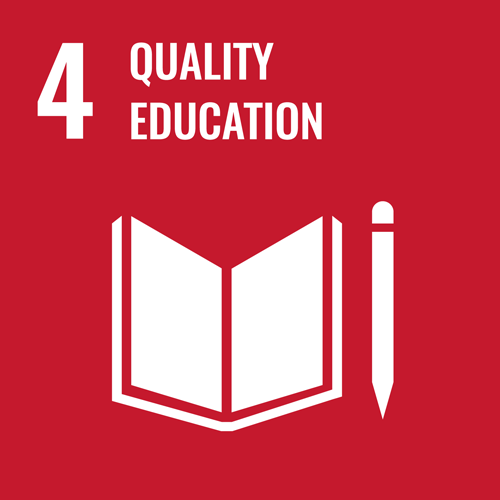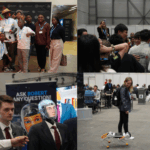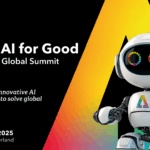To mark International Literacy Day on 8 September, ITU News caught up with Matt Keller, Senior Director of the Global Learning XPRIZE. He is leading an effort that challenges teams from around the world to create innovative technologies that will bring children — on their own and with each other — from non-literacy to literacy in 18 months in places where quality learning environments are difficult to access.
What are some of the most exciting ways tech can help improve global learning?
Technology can give access at scale to tens of millions of children who have no access to learning because of distance, economics, culture, or a combination of things. Technology gives us the opportunity to reach children where they live, and it gives us the opportunity to finally bring out not only the inner learner in every child, but the inner teacher as well.
RELATED: Bringing the digital revolution to all primary schools in Kenya
When you watch children receive tablets for the first time, for example, the extraordinary thing isn’t that they figure out how to use them within minutes, it’s the instantaneous collaboration that happens.
“Technology can give access at scale to tens of millions of children who have no access to learning because of distance, economics, culture, or a combination of things”–Matt Keller
This learning, driven by the child, and fostered by technology, is the future of learning in my opinion.
How is XPRIZE helping to address the lack of basic literacy, which you describe as an ‘epic market failure’?
We are focusing on leveraging the innate learner and teacher in every child to dramatically scale quality learning. I say education is an epic market failure because 300 million children go to school and leave without learning how to read. That figure just stuns me.
RELATED: How can young people seize the opportunities of artificial intelligence?
If we truly believe in the UN Declaration of Human Rights which states that education is a fundamental right, we certainly need to think differently on how to achieve it. More of the same is morally unacceptable.
How does Global Learning XPRIZE build on some of the successes and lessons learned of previous initiatives such as One Laptop Per Child?
One Laptop per Child (OLPC) made tremendous breakthroughs in dramatically lowering the cost of computing for everybody. What was once over $1,000 price point for entry, dropped 80 percent virtually overnight.
This was a stunning achievement, but more importantly, it was the first time that someone designed hardware at scale for children in difficult environments. Low power. Dust resistant. Water resistant, etc. What is different between the laptop and the tablet, however, is that tablets are stunningly intuitive and laptops were not.
OLPC believed that children could figure out the laptop on their own, but it was a difficult proposition.
It was also difficult to go through school systems that were often not prepared for children engaging with technology.
What the Global Learning XPRIZE does is to go straight to the child and their parents, with the belief that children can and do figure out tablets immediately, and that given the right software/content, children can teach themselves.
RELATED: The Kio Kit: a digital learning solution engineered in Africa for the world
This is a true supplement to whatever school that child may be in. And if that child is not in school, then it is their education. The tablet we have found is an infinitely patient teacher and children can go over something again and again without fear of punishment or embarrassment.
How important is Artificial Intelligence to improving global learning? Why?
It is hugely important.
Imagine a device that listens to children. That talks to them about things they like. That knows what they know and don’t know and allows the child to teach to it. Knows the trajectory the child is on. Allows for a back and forth that gives the child an opportunity to learn at their own pace. That gently corrects the child if she is writing a letter the wrong way.
Talk about AI for Good!!!!
You attended the AI for Good Global Summit in May. What are some of your top takeaways?
My three top takeaways are these:
1) It is the only conference I have been to in years where a disparate set of actors are truly looking to partner with one another in a way that adds to the common good. People and institutions truly desiring to work together and join forces.
2) That we are on the verge of understanding the role AI can play in a number of fields where the opportunity for changing things for the better is ripe.
RELATED: AI and healthcare: ‘AI for Good’ project pitches consider technology, business and ethics
3) We are really figuring it out together. All of us at that conference are sincerely trying to make sense of AI and utilize it in such a way that contributes to the common good. In my opinion, it is the most significant conference in the world of development.
Note to readers: Views expressed in this article do not necessarily reflect those of ITU.













